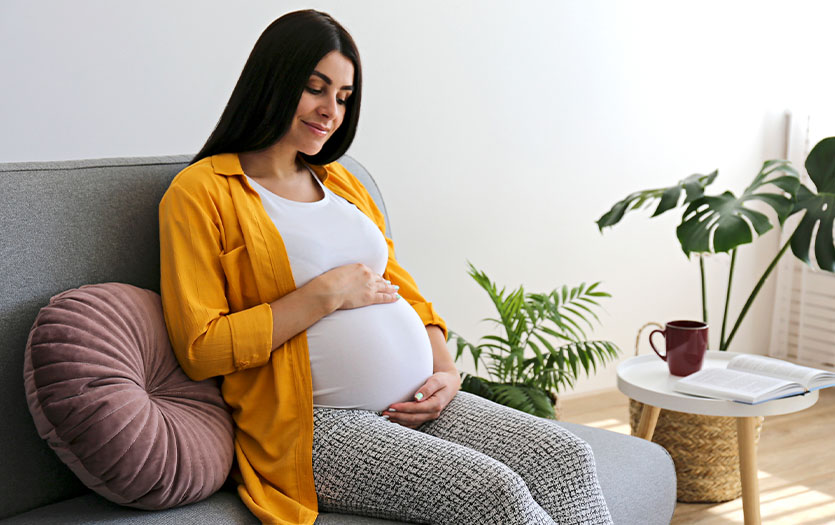
During pregnancy, expecting parents look forward to those moments when they can feel their baby move. These shared kicks, hiccups, rolls, turns and twists can seem like a form of communication between the little one growing inside you and the outside world. These common and expected movements will also get stronger as the baby develops.
Knowing what different sensations mean can be helpful and comforting as your body and baby change.
Fluttering, butterflies or bubbles
You'll probably start to feel your baby move sometime between 16 and 22 weeks. At first, these small movements feel like fluttering or "butterflies." Or they may feel like gas bubbles. These first flutters are sometimes called "quickening."
Hiccups
Around 21 to 24 weeks, you may start to feel some jerky movements inside your belly. You might even see them on the outside. Repeated jerky movements usually mean that your baby has hiccups.
Hiccups are perfectly normal. They can last from a minute to an hour. You may feel your baby have hiccups now and then throughout the rest of your pregnancy.
Kicks, twists and turns
As your pregnancy goes on, you may feel some changes in your baby's movement. Around 25 to 28 weeks, your baby may start to kick and stretch. And you may notice that your baby does less turning and twisting and more squirming or jerking.
Around 30 to 32 weeks, your baby turns less and kicks and jabs more.
At about 28 weeks, your baby may move from head-down to feet-down, or even sideways.
When and how often your baby should move
After 18 to 20 weeks, you may notice that your baby moves more at certain times of the day. For example, when you are active, you may feel less movement than when you're resting quietly. Babies find the activity and noise of daytime hours to be soothing. So, they often sleep during the day and are awake at night.
Starting at about 30 to 32 weeks, you should feel your baby move several times daily. Babies usually sleep 20 to 45 minutes at a time and then are more active at certain times of the day.
By 40 weeks, your baby has grown larger and has little room to move around. You will probably notice less "big" movement than before.
Call your doctor or midwife right away or seek immediate medical care if you notice that your baby has stopped moving or is moving less than normal.
Copyrighted material adapted with permission from Healthwise, Incorporated. This information does not replace the advice of a doctor.



